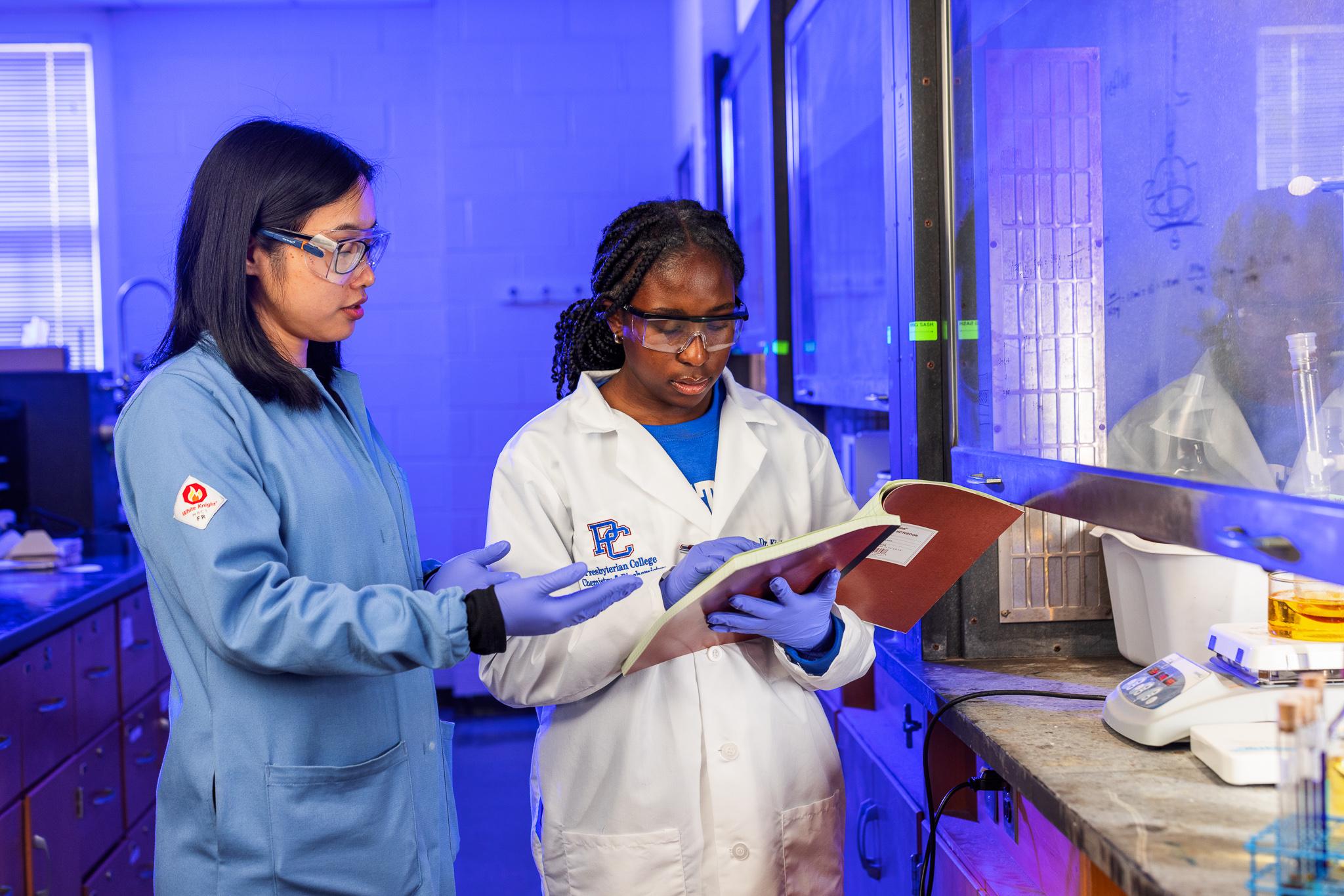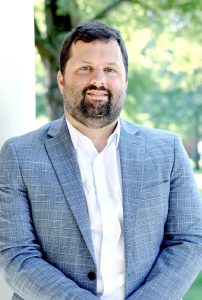Presbyterian College launches center for inquiry, research, and scholarship
July 15, 2024In 11th-century France, famed philosopher and logician Peter Abelard wrote that the first key to wisdom is “constant and frequent questioning … for by doubting we are led to question, and by questioning we arrive at the truth.”
At Presbyterian College, the search for wisdom and truth continues in the 21st century with renewed vigor and increased emphasis, thanks to a new academic initiative introduced last spring.
At her inauguration in April, PC president Dr. Anita Gustafson announced the Center for Inquiry, Research, and Scholarship (CIRAS) – a dedicated hub to inspire a culture of academic excellence and intellectual curiosity. The center will emphasize student and faculty collaboration and provide resources for students to explore their interests, ask questions, think critically, and search for answers across all academic disciplines.
“We know that engaged learning, particularly research that students and faculty conduct collaboratively, makes a significant and positive impact on students’ academic journeys,” Gustafson said. “It allows them to explore new ideas, to work collaboratively, and to think analytically, critically, and creatively as they pull together conclusions. In short, engaged learning embraces curiosity – a key ingredient of a liberal arts education. And it’s what today’s students seek out in their undergraduate experience.”

Associate professor of biology Dr. Austin Shull ’11 was appointed as CIRAS’ first director. In his new role, Shull will serve as PC’s champion for student research, which include existing research programs like Summer Fellows, honors research, and capstone experiences. The center will also be a conduit for student applications for prestigious scholarships and fellowships like the Rhodes, Truman, Marshall, Goldwater, and Fulbright scholarships.
PC faculty should also benefit from CIRAS’ focus on increasing awareness and competition for extramural grants from foundations like the National Institutes of Health, the National Science Foundation, and other research foundations.
Shull is himself a dedicated researcher and collaborator, having conducted cancer research alongside several of his students over the years. In addition to continuing those endeavors, Shull hopes to encourage and empower his colleagues in every academic department to engage with and mentor their students and make research a prominent part of the college’s curriculum.
“There are fantastic scholars here at PC who’ve done great work mentoring students, pursuing their own research, and involving students in research as an educational tool for our students,” Shull said. “It’s been incredibly humbling to build upon many of the efforts and successes that have come before me. In many ways, I see myself serving as the chief advocate for the promotion of research and scholarship at PC.”
From required capstone experiences to honors research conducted during the academic year, the college offers a range of research opportunities. The eight-week PC Fellows program offered each summer gives each student up to 200 hours of dedicated research experience. In addition, there are student-faculty research grants provided by S.C. Independent Colleges and Universities and grants from the NASA South Carolina Grant Consortium offered to students engaged in NASA-related projects. The National Institutes of Health also funds the South Carolina IDeA Networks of Biomedical Research Excellence (SC INBRE), which supports biomedical research for approximately eight to 10 PC students.
PC also finds ways to celebrate student research and academic achievement. At the end of each summer, the college holds its annual Summer Research Symposium for students to present the fruits of their hard work. Near the close of every academic year in the spring, the college hosts its annual Honors Day Symposium for honors and capstone presentations, highlighted by the prestigious Honors Day convocation recognizing the college’s brightest student and faculty scholars.
Shull said CIRAS is the natural evolution of PC’s mission to provide a transformative educational experience for all students.
“One of the great things I’ve realized since returning to my alma mater as a professor is the progress that has been made since I was a student to make research and scholarship a more important part of PC’s academic mission,” he said. “I’ve had wonderful professors, some of whom are now my colleagues, who have been a part of that, and I’ve learned a great deal from them as both a student and professor. Now, I’ve been given the opportunity to help centralize many of those efforts and create a common mission to make research a vital part of a liberal arts education.”
Exploring the great questions that spark the imagination or test intriguing hypotheses should be higher education’s finest achievement, he said.
“A great part of a liberal arts education is addressing questions that don’t have a concrete answer yet,” Shull said. “The classic example is that of the well-examined life. So, we have to ask ourselves how we can teach students to examine life through research and scholarship. How can we integrate that into the life of PC so that our students are a reflection of a liberal education when they graduate and go on to have impactful lives in their communities and society?”
PC graduates – even those who do not pursue research careers – can be a positive force for change because they have experienced firsthand what it means to solve problems critically and with an open mind. Because every student is required to fulfill a capstone experience in their major in order to graduate, research is not simply a hope but an expectation.
“Our students have the tools and the motivation to figure out the best approaches and solutions to any problem,” Shull said. “We tend to think of an education as pouring our knowledge and experience into empty vessels, but that’s not what shapes them. What truly motivates them is not just a quest for knowledge but a space to explore.”





















